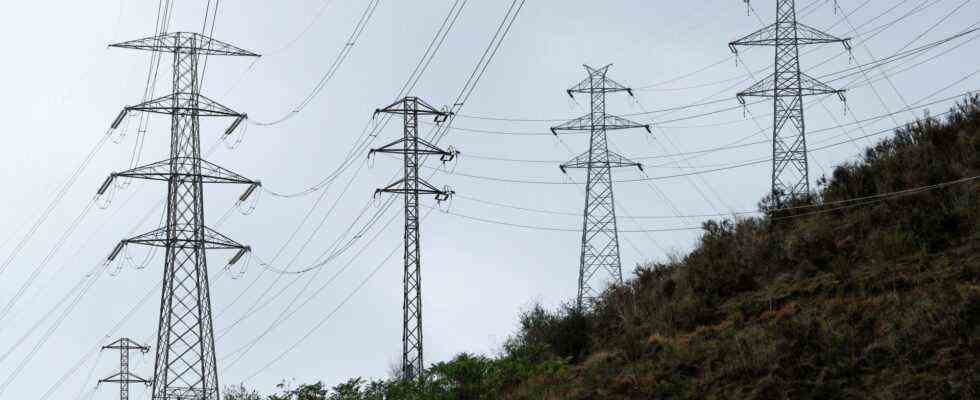Status: 02.10.2021 8:30 a.m.
Unlike in Germany, electricity bills in Spain follow the daily rates on the electricity exchanges – and they rush from record to record. Some blame high gas prices, others the market rules.
Several times a week, the Spanish media are currently reporting a historic maximum price per megawatt hour on the electricity price exchanges. It has soared from just under 40 euros 15 months ago to as much as 220 euros. This means that electricity at the most expensive time of the day is more than five times as expensive as it was a year ago.
Because most consumer contracts in Spain do not fix the price per kilowatt hour – unlike in Germany – for twelve or 24 months, the record prices on the electricity exchanges reach consumers with little make-up.
Government countermeasures
This also triggered political reactions: Prime Minister Pedro Sanchez promised that the electricity bill would not be more expensive over the year than in 2018 – a year with medium-high electricity prices.
The government cut the VAT on electricity from 21 to 10 percent. She also wants to force energy suppliers to pass on payments for CO2 savings to consumers. This is a tax in disguise and will not stand in court, say some experts – and energy companies are even threatening to shut down nuclear power plants. The increasingly scarce supply of electricity would drive prices up further. However, the government is now saying that it is not legally possible to shut down the power plants without further ado.
Spain’s Prime Minister Sanchez is trying to curb the rapid rise in the price of electricity.
Image: dpa
Gas prices drive up electricity prices
The trigger for the electricity price rally is rising gas prices. They increase the cost of electricity generation, especially in gas-fired peak-load power plants. Wind turbines or hydropower plants are not affected by this, but the final price on the exchange for electricity – regardless of the source – is always based on the most expensive offer.
The criticism of this system is growing. Electricity from depreciated reservoir hydropower plants that do not need fuel is just as expensive as that from gas turbine power plants, says Daniel Carracero from the organization Kritisches Energieforum. This huge profit creates a massive market distortion
Other electricity market experts such as Jorge Sanz from the consulting firm NERA defend the system. If electricity from hydropower were to be sold at producer price, it would have to be almost free, which would send the wrong signal, he says. “Consumers would have the impression that there is electricity in abundance and would consume electricity without hesitation,” says Sanz. “Only: the water in reservoirs is free, but there is only as much as it rains. You cannot generate unlimited electricity with it, if the price is too low, there is a risk of supply bottlenecks.”
Experts: Government measures cosmetics only
Regardless of whether they believe in the power of the market or demand a new system for the electricity price exchange – the experts agree on one thing: the attempts by the Spanish government to keep the electricity bill at a bearable level are primarily cosmetic.
In Germany, too, electricity customers will have to prepare for the fact that the providers will soon announce an increase in the current tariffs. Thanks to the special right of termination, a price comparison and a change of provider could then be worthwhile.
Spaniards are already experiencing what threatens German electricity customers today
Reinhard Spiegelhauer, ARD Madrid, October 1, 2021 10:25 am

